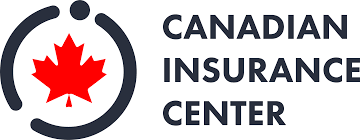Canada stands as a beacon of opportunity and diversity, attracting immigrants from all corners of the globe. With its robust healthcare system, quality of life, and economic opportunities, Canada is a popular destination for individuals and families seeking a better future. However, amidst the excitement of relocation, immigrants often overlook the critical aspect of securing insurance coverage to safeguard their health, assets, and loved ones.
This comprehensive guide aims to shed light on insurance options available to immigrants in Canada, delineating various types of insurance and policies to help newcomers achieve financial security and peace of mind in their new homeland.
Understanding Insurance for Immigrants
Insurance serves as a financial safety net, offering protection against unforeseen risks and emergencies. For immigrants settling in Canada, acquiring the right insurance coverage is paramount to mitigate potential financial hardships resulting from medical emergencies, accidents, property damage, or loss of income.
Types of Insurance for Immigrants
- Health Insurance:
- In Canada, healthcare is primarily funded through taxation and provided through the publicly funded system known as Medicare. However, there are gaps in coverage, particularly for prescription drugs, dental care, and vision care.
- Immigrants may be eligible for provincial health insurance coverage after a waiting period, typically three months. During this waiting period, private health insurance can bridge the gap and provide essential coverage for medical expenses.
- Life Insurance:
- Life insurance ensures financial protection for loved ones in the event of the policyholder’s death. It provides a lump sum payment to beneficiaries, helping cover expenses such as mortgage payments, debts, and living costs.
- Term life insurance and permanent life insurance are the two main types available in Canada. Term life insurance offers coverage for a specified period, while permanent life insurance provides lifelong protection and may include a cash value component.
- Auto Insurance:
- Mandatory auto insurance is required in Canada to legally operate a vehicle on public roads. It provides coverage for bodily injury, property damage, and uninsured motorists.
- Immigrants must obtain auto insurance upon purchasing or leasing a vehicle. Factors such as driving record, age, and type of vehicle influence insurance premiums.
- Home Insurance:
- Home insurance protects homeowners and renters against property damage, theft, and liability claims. It provides financial compensation to repair or replace belongings and cover additional living expenses in case of temporary displacement.
- Immigrants purchasing or renting a home should secure adequate home insurance coverage to safeguard their property and possessions against unforeseen events like fire, theft, or natural disasters.
- Disability Insurance:
- Disability insurance offers income replacement if the policyholder becomes disabled and unable to work due to injury or illness. It ensures financial stability by providing a portion of the individual’s income during the disability period.
- Immigrants relying on their ability to work should consider disability insurance to protect against the risk of lost income and financial hardship resulting from unexpected disabilities.
- Travel Insurance:
- Travel insurance provides coverage for medical emergencies, trip cancellations, lost baggage, and other travel-related mishaps. It offers peace of mind while traveling within Canada or abroad.
- Immigrants planning domestic or international travel can benefit from travel insurance to mitigate financial risks associated with unforeseen events during their journeys.
Navigating Insurance Policies as Immigrants
- Research and Comparison:
- Immigrants should research insurance providers, policies, and coverage options to make informed decisions based on their needs and budget.
- Online resources, insurance brokers, and community organizations can offer valuable guidance and assistance in understanding insurance policies and requirements.
- Assessing Needs and Risks:
- Immigrants must assess their insurance needs and identify potential risks associated with health, property, income, and other aspects of their lives.
- Consideration should be given to factors such as family size, lifestyle, employment status, and financial obligations when selecting insurance policies.
- Understanding Policy Terms and Conditions:
- Immigrants should carefully review insurance policy documents to understand coverage limits, deductibles, exclusions, and claim procedures.
- Seek clarification from insurance agents or brokers regarding any ambiguous terms or conditions to avoid misunderstandings in the event of a claim.
- Regular Review and Updates:
- Insurance needs may evolve over time due to changes in personal circumstances, lifestyle, or regulatory requirements.
- Immigrants should periodically review their insurance coverage and update policies as needed to ensure adequate protection against new risks or changes in coverage requirements.
Conclusion
Navigating the complex landscape of insurance in Canada can be daunting for immigrants, but it is an essential aspect of achieving financial security and peace of mind in their new homeland. By understanding the types of insurance available, assessing individual needs and risks, and selecting appropriate policies, immigrants can safeguard their health, assets, and loved ones against unforeseen challenges and emergencies. With careful research, informed decision-making, and proactive risk management, immigrants can embark on their Canadian journey with confidence and resilience, knowing they are adequately protected against life’s uncertainties.

